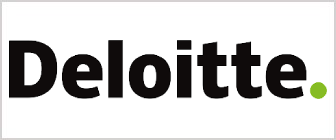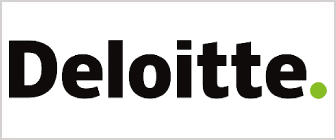Why did you choose to pursue a career in tax? Was there an ‘aha’ moment? If so, please describe.
Since my undergraduate studies where I focused on international relations and economics, I knew I wanted to work in a role related to international business. I joined The Boeing Company’s graduate program right out of school which allowed me to try a number of different roles from accounting, to corporate audit, contract management, business development and finally global trade. In this last role, I was able to travel the world—working with people from different cultures and gaining an understanding of how different governments implemented and enforced trade regulations. When Deloitte recruited me in 2009 to join the Tax practice and help grow the Global Trade Advisory services, it presented a unique opportunity to apply what I had learned but also expand my experience across industries. With Deloitte, I realized that I could do what I loved, but was also able to build a practice and expand my knowledge of different sectors.
From your career, is there a particular deal that sticks out to you as a turning point, or watershed moment for you, and why? What did you learn or take away from that deal?
A specific project that sticks out as a watershed moment is when I led a global team of global trade specialists to conduct an audit of a trade program for a client that was under the supervision of a Special Compliance Officer. The audit had a number of external stakeholders including government agencies in North America, Europe and the Middle East. The project was one of the most sensitive and complex regulatory projects that I had led—in particular given the regulator scrutiny of our work. The reason why this specific project stands out is that, by delivering a high-quality result, it allowed us to gain a great reputation with the regulators and other key external stakeholders for the provision of global trade services. This brand recognition has allowed us to grow and become one of the most experienced global trade practices.
What do you consider to be the greatest achievements of your career to date?
Becoming a Partner at Deloitte was definitely one of the highest achievements in my career. But that would not have happened if I was not surrounded by a great team and supported by excellent mentors. For me, supporting my team and colleagues succeed so that they grow professionally has been the most rewarding aspect of my career.
Tax work in the pandemic era
What kind of challenges did you face adapting to the workplace amid the pandemic?
In January 2020, I joined Deloitte Tax in the USA after 15 years in the UK. Moving countries and starting a new job, with a new team and then having the COVID-19 pandemic kicking in, created a number of challenges. The primary one was the fact that I had not had an opportunity to meet most of my colleagues before we were grounded which made it difficult at the beginning to build the rapport and help manage the concerns the team was experiencing. I think like everyone, you adapt quickly by leveraging the technology that is available and you make time to have purposeful communications.
Are there any initiatives that you have observed which you feel may help your clients deal with the repercussions of the Covid-19 pandemic?
I think the Covid-19 pandemic drove many companies to re-evaluate how they communicated with employees. From that perspective, I observed two main trends that I thought have been effective at helping improve engagement within the team. The first is the holding of regular and open dialogues on the business but also the broader situation. The other was replacing broadcast communications with individual messages and touch points with team members.
What is the most significant change to your region/jurisdiction’s tax legislation or regulations in the past 12 months?
There are many new legislation and regulations in the last 12 months that have had an impact on clients in the US. From a global trade standpoint, the one that stands-out is the United States-Mexico-Canada Agreement (USMCA) which became effective on 1 July 2020. USMCA replaced the North America Free Trade Agreement (NAFTA) which had been in place for 26 years. Many companies have had to adapt to the new requirements including changing trade management systems and processes.
What was one of the most interesting deals you worked on in the past year and why?
Probably one of the most interesting deals that I worked on was related to a major business transformation for a Life Sciences client. This Life Sciences client was seeking to modernize their business processes and IT systems to enable them for their planned exponential growth. This was one of the most interesting projects because it allowed us and the client to evaluate all the critical aspects that need to be considered from a direct and indirect tax standpoint so that the business transformation was as effective as possible. The client was presented with a unique opportunity to change its business so that it could become more resilient and efficient in the future. This journey has allowed the client to quickly start realizing the anticipated processes efficiencies and cost savings—setting up the business for future success.
What potential other legislative/regulatory changes are on the horizon that you think will have a big impact on your region/jurisdiction?
There are many legislative and regulatory changes on the horizon which I believe will have an impact in Tax. However, the one that stands out to me is the potential for Border Carbon Tariffs, which aim at imposing taxes on certain imports to fight climate change. This could have significant impact in the USA but also globally.
A career in tax
What key piece of advice would you give to young attorneys just getting into a firm or entry-level job? Is there something you wish you knew when you were first starting out?
Be open to experience as many things as possible. As you start a new role, I would recommend to always seek learning opportunities. There are endless opportunities to gain new knowledge and experience new things. Take full advantage—you will only expand your toolset of skills which will help you throughout your career.
What does your firm do to nurture and promote talent? Do you think it compares well to others in your market in this area?
From my perspective, the war for talent has never been as fierce as it is today. Nurturing and promoting top talent is critical to retain high performers. One thing that we have done in this regard is to clearly link individuals’ careers to the corporate strategy by establishing strategic initiatives that enable the organization’s strategy execution. By providing high performers with opportunities to lead various aspects of these initiatives, we have seen significant improvement in engagement and overall results.
If you could introduce one new policy in the legal profession what would it be?
It is difficult to pick one new policy for the legal profession. If I consider more holistically the tax legal profession, one thing I would introduce is the focus on skills related to data analytics and use of tax technology. Considering the future of the tax profession, it is clear that to be a successful tax advisor, one will require these critical skill sets.
What does the tax function of the future look like?
The tax function of the future will definitely be digitized—meaning that technology will be used to modernize all aspects of the function and services it delivers to the business. In particular, I expect in the years to come that there will be an exponential growth in the use of Artificial Intelligence to provide tax services.
This document has been prepared solely for the purpose of publishing in the 2022 Women in Tax Leaders guide (Americas edition) and may not be used for any other purpose. This document and its contents may not be reproduced, redistributed or passed on, directly or indirectly, to any other person in whole or in part without Deloitte’s prior written consent.
Deloitte refers to one or more of Deloitte Touche Tohmatsu Limited (“DTTL”), its global network of member firms, and their related entities (collectively, the “Deloitte organization”).
DTTL (also referred to as “Deloitte Global”) and each of its member firms and related entities are legally separate and independent entities, which cannot obligate or bind each other in respect of third parties. DTTL and each DTTL member firm and related entity is liable only for its own acts and omissions, and not those of each other. DTTL does not provide services to clients. Please see www.deloitte.com/about to learn more.
Deloitte is a leading global provider of audit and assurance, consulting, financial advisory, risk advisory, tax and related services. Our global network of member firms and related entities in more than 150 countries and territories (collectively, the “Deloitte organization”) serves four out of five Fortune Global 500® companies. Learn how Deloitte’s approximately 330,000 people make an impact that matters at www.deloitte.com.
This communication contains general information only, and none of Deloitte Touche Tohmatsu Limited (“DTTL”), its global network of member firms or their related entities (collectively, the “Deloitte organization”) is, by means of this communication, rendering professional advice or services. Before making any decision or taking any action that may affect your finances or your business, you should consult a qualified professional adviser.
No representations, warranties or undertakings (express or implied) are given as to the accuracy or completeness of the information in this communication, and none of DTTL, its member firms, related entities, employees or agents shall be liable or responsible for any loss or damage whatsoever arising directly or indirectly in connection with any person relying on this communication. DTTL and each of its member firms, and their related entities, are legally separate and independent entities.
© 2021. For information, contact Deloitte Global.


